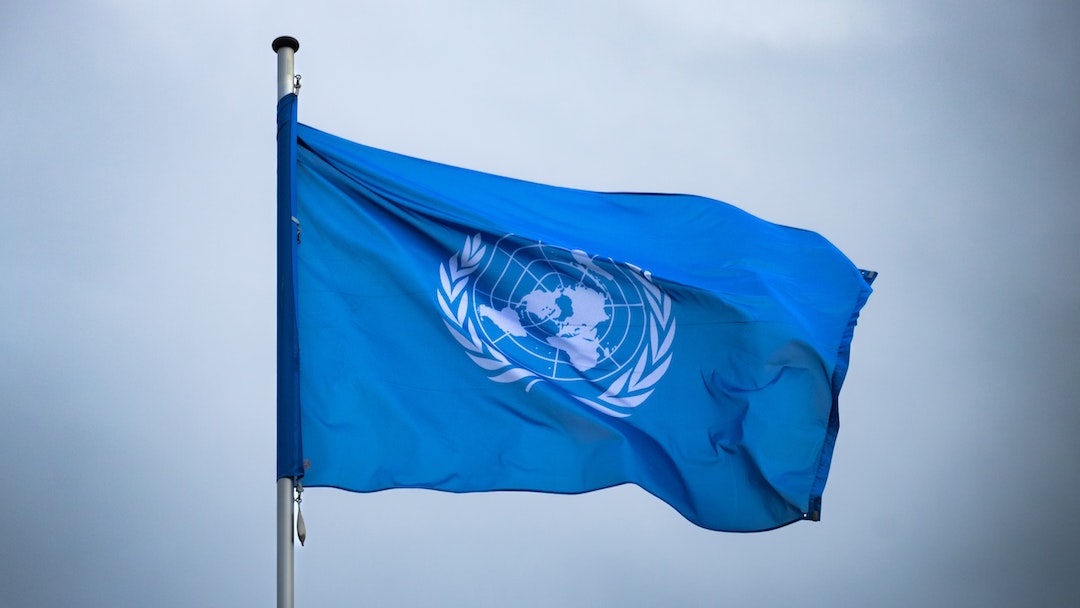
Jul 13, 2023 | Blog, Criminal Defense
When it rains down in legal problems it’s probably going to pour. So you better have an umbrella fund off to the side somewhere safe…hidden…out of reach…stashed.
If you don’t have the funds, you won’t get good representation…and then you’re easy prey for the prosecutors and law enforcement.
As the marijuana industry continues to grow and evolve in Michigan, it’s crucial for marijuana cultivators to understand the importance of having legal defense funds readily available.
Despite the legalization of marijuana in the state, there are still potential legal challenges and risks that growers may face.
Having legal funds at the ready applies to everyone from
- state licensed entities
- caregivers and patients
- recreational growers and consumers
- hemp cultivators.
Understanding the legal landscape for marijuana cultivation in Michigan
An overview of marijuana laws in Michigan
In recent years, Michigan has seen significant changes in its marijuana laws. In 2008, the state passed the Michigan Medical Marihuana Act, which allowed the use of medical marijuana for qualifying patients. Then, in 2018, Michigan voters approved the Michigan Regulation and Taxation of Marihuana Act, which legalized the recreational use of marijuana for adults.
Under these laws, individuals aged 21 and older can possess and cultivate marijuana in certain quantities. However, it’s important to understand the specific regulations and limitations that apply.
Recent developments and changes in marijuana legislation
The legislative landscape surrounding marijuana cultivation in Michigan is constantly evolving. It’s crucial for cultivators to stay informed about any new developments or changes in the law.
For example, in 2020, the Michigan Marijuana Regulatory Agency (MRA) issued emergency rules that introduced licensing requirements for commercial marijuana establishments, including cultivation facilities. These rules outline specific procedures and standards that growers must adhere to.
By keeping up with the latest legislation and regulations, marijuana cultivators can ensure they are operating within the bounds of the law and avoid potential legal complications.
Potential legal challenges faced by marijuana growers in Michigan
State and federal conflicts in marijuana regulations
One of the major challenges faced by marijuana growers in Michigan is the conflict between state and federal regulations. While marijuana cultivation may be legal under state law, it remains illegal at the federal level.
This discrepancy creates uncertainty and can expose growers to potential legal risks. Federal law enforcement agencies, such as the Drug Enforcement Administration (DEA), can still enforce federal marijuana laws, although they typically focus on larger operations and violations that involve other criminal activities.
Nevertheless, it’s important for marijuana cultivators to understand the potential consequences and navigate this legal gray area cautiously.
Risks associated with non-compliance in cultivation practices
Even within the framework of state laws, there are numerous regulations and requirements that marijuana cultivators must adhere to. Failure to comply with these rules can result in legal consequences, including fines, license revocation, and even criminal charges.
Common compliance issues include exceeding plant limits, improper labeling, inadequate security measures, and failure to follow proper cultivation and testing procedures. It’s crucial for cultivators to stay informed and ensure they are operating in accordance with all applicable laws and regulations.
The Importance of having legal defense funds for marijuana cultivators
The financial burden of legal defense in marijuana cultivation cases
Legal challenges can be financially draining, and marijuana cultivators are no exception. Defending oneself in a legal case can involve expensive legal fees, court costs, and potential fines or penalties. These financial burdens can quickly accumulate and become overwhelming.
Having legal defense funds set aside can help alleviate the strain and ensure that cultivators can afford proper legal representation when needed. It’s a proactive measure that cultivators should consider to protect themselves from unexpected legal challenges.
The benefits of proactive legal preparation
In the ever-changing world of marijuana legislation, being prepared is key. By setting aside legal defense funds, cultivators can take a proactive approach to potential legal challenges. This preparation allows cultivators to act swiftly when needed, securing legal representation and taking necessary steps to protect their interests.
Having legal defense funds in place also provides peace of mind. It allows cultivators to focus on their operations without constantly worrying about potential legal troubles, knowing they have the resources to defend themselves if the need arises.
Navigating the complexities of marijuana laws in Michigan
Understanding licensing and permitting requirements
Obtaining the necessary licenses and permits is crucial for marijuana cultivators in Michigan. The state has established a comprehensive licensing system to regulate commercial marijuana operations.
Understanding the specific requirements, application processes, and deadlines associated with licenses is essential. It’s advisable to seek legal counsel to ensure compliance with all licensing and permitting obligations.
Comprehending zoning restrictions and land use regulations
Zoning restrictions and land use regulations add another layer of complexity to marijuana cultivation in Michigan. Local municipalities have the authority to regulate the location and operation of marijuana establishments within their jurisdictions.
Cultivators must familiarize themselves with the zoning laws in their area and ensure their operations comply with the specified land use regulations. Failure to do so can result in costly legal disputes or even forced closure of the cultivation facility.
By staying informed and working within the boundaries of zoning and land use regulations, cultivators can avoid unnecessary legal complications and focus on their business objectives.
Securing legal representation: the role of a defense attorney in marijuana cultivation cases
When it comes to growing legal marijuana in Michigan, having a reliable and experienced defense attorney like Komorn Law by your side is crucial. While the state allows for the cultivation of recreational and medical marijuana, there may still be legal challenges that require professional legal assistance.
Qualifications and expertise to look for in a defense attorney
Finding the right defense attorney is essential to protect your rights and navigate the complexities of marijuana cultivation cases. Look for attorneys who specialize in cannabis law and have experience dealing with similar cases. They should have a deep understanding of the ever-changing marijuana regulations in Michigan and be familiar with the specific nuances of the industry.
The importance of attorney-client privilege and confidentiality
When discussing legal matters, confidentiality is key. Attorney-client privilege ensures that any information shared between you and your defense attorney remains confidential. This protection is crucial for open and honest communication, allowing you to provide your attorney with all relevant details without fear of it being used against you.
Costs and considerations of legal defense for marijuana growers in Michigan
While nobody likes to think about legal trouble, it’s essential to consider the potential costs associated with legal defense in the marijuana industry.
Evaluating the potential costs of legal defense
Legal defense can be expensive, and the cost will vary depending on the complexity of your case.
Factors such as the nature of the charges, the amount of evidence involved, and the length of the legal process can all impact the overall cost.
It’s wise to consult with prospective defense attorneys to get an estimate of the potential costs involved in your specific situation.
Factors to consider when budgeting for legal representation
When budgeting for legal representation, it’s crucial to assess your financial situation realistically. Consider factors such as attorney fees, court expenses, and any additional costs that may arise during the legal process. It’s wise to set aside a substantial amount or create a legal defense fund to ensure you have the necessary resources when they are needed most.
These funds should be stashed away somewhere to avoid being “confiscated” by law enforcement.
Preemptive measures: building a legal defense fund for marijuana cultivation
Being proactive and planning ahead can save you from unnecessary stress and financial strain in the event of legal disputes related to marijuana cultivation.
Strategies for setting aside funds for legal defense
One effective strategy is to establish a dedicated legal defense fund specifically for covering potential legal expenses. This fund should be separate from your regular business finances and set aside on a regular basis. By consistently contributing to this fund, you can accumulate the necessary resources over time, providing you with a safety net if legal issues arise.
Developing a comprehensive legal defense plan
Having a well-thought-out legal defense plan is essential. This includes not only financial preparations but also understanding the legal framework and regulations surrounding marijuana cultivation in Michigan. Stay abreast of any changes in the law and consult with your defense attorney to ensure you are always prepared to defend your rights.
Anything you say will be used against you!
Call our office before you say anything —>
Frequently Asked Questions
1. Is it necessary to have legal defense money if marijuana cultivation is legal in Michigan?
While marijuana cultivation may be legal in Michigan, there are still potential legal challenges and risks associated with the industry. Having legal defense funds readily available is crucial to navigate these complexities and protect your interests in case of any legal disputes or challenges that may arise.
2. How much should I budget for legal defense funds?
The amount to budget for legal defense funds may vary depending on various factors, such as the size of your operation, the level of risk involved, and the specific legal services you may require. It is recommended to consult with a legal professional to assess your unique situation and determine an appropriate budget for your legal defense funds.
3. Can I rely solely on compliance to avoid legal issues?
While compliance with marijuana laws and regulations is crucial, it is not a foolproof guarantee against legal issues. Laws and regulations can change, and misunderstandings or disputes may arise. Having legal defense funds in place ensures you are prepared to navigate any unforeseen legal challenges that may arise, even if you are operating in full compliance.
4. What steps can I take to minimize legal risks as a marijuana grower in Michigan?
To minimize legal risks as a marijuana grower in Michigan, it is important to stay informed about the latest laws, licensing requirements, and zoning regulations. Maintaining meticulous records and documentation, implementing robust compliance practices, and seeking legal counsel when needed are all proactive measures that can help mitigate legal risks associated with operating in the marijuana industry.
If you or someone you know has been accused of a crime or DUI.
Call Komorn Law and turn the odds in your favor.
Call Now 248-357-2550
Komorn Law Social Media
Recent Posts
Tag Cloud
Blog
Cannabis Science
Criminal Defense Attorney Michael Komorn
Driving
DUI
Federal Laws
Forfeiture
Health Benefits of Marijuana
Hemp
Know Your Rights
Komorn Law Blog
LARA-MMFLA Info
Legalization
Marijuana Criminal Defense Attorney Michael Komorn
Medical Marijuana
Medical Marijuana Attorney Michael Komorn
Michigan Laws
Michigan Medical Marhuana Regulation
Michigan Medical Marijuana Act
Michigan Medical Marijuana Criminal Defense Attorney Michael Komorn
Michigan News
Michigan Supreme Court
News
Planet Green Trees Radio
Recent Victories
Supreme Court
Uncategorized
USA news
Victories Project
Your Rights
DISCLAIMER
This website and/or post may contain re-posted content, opinions, comments, ads, third party posts, outdated information, posts from disgruntled persons, posts from those with agendas, private stuff, work related information, non work related information and general internet BS. Therefore…Before you believe anything on the internet regarding anything and everything – do your research on “Official Government and State Sites”, Call the Michigan State Police, Check the State Attorney General Website and Consult an Attorney – Use Your Brain. You’re on the internet.

Mar 29, 2023 | Blog, News
The United Nations (UN) has long been a vocal opponent of drug use and trafficking, issuing various international drug control conventions that aim to prevent the spread of drug abuse worldwide. Recently, the UN has expressed concern about the growing trend of marijuana legalization in the United States, calling on the U.S. government to overturn its decision to legalize the drug.
Background on UN’s position on marijuana legalization
The UN has historically taken a hardline stance against drug use, including marijuana. This position is reflected in international drug control conventions, such as the Single Convention on Narcotic Drugs of 1961 and its later amendments, which aim to limit the production, sale, and use of drugs worldwide. The UN believes that drug use poses significant risks to public health and safety, as well as to social and economic development.
The legalization trend in US states
Despite the UN’s opposition to marijuana legalization, the drug has become legal for recreational use in 18 U.S. states as well as the District of Columbia. Additionally, medical marijuana is legal in 36 states. The trend towards legalization has been driven by changing attitudes towards marijuana and the potential economic benefits of a legal marijuana industry.
The impact of marijuana legalization on international drug policies
How US legalization affects international drug treaties
The UN’s drug control conventions are international treaties that have been ratified by most of the world’s nations, including the United States. The legalization of marijuana in the U.S. has raised questions about the country’s compliance with these treaties, and has sparked a debate over whether international drug policies need to be reevaluated to reflect changing attitudes towards marijuana.
Challenges for UN’s drug control efforts
Marijuana legalization in the U.S. presents a challenge for the UN’s drug control efforts, as it undermines the international consensus on drug policy. Some countries may see the U.S.’s decision to legalize marijuana as a green light to do the same, which could lead to an increase in drug use and trafficking worldwide.
The potential consequences of legalizing marijuana on public health
The debate over marijuana’s medical benefits and risks
Proponents of marijuana legalization argue that the drug has medical benefits, such as pain relief and anxiety reduction. However, opponents point to research indicating that marijuana use can have negative effects on health, including impairments in memory and attention, increased risk of mental illness, and decreased lung function.
Potential effects of marijuana use on mental health
Marijuana use has been linked to an increased risk of mental illness, particularly in young people. Studies have shown that marijuana use can trigger or exacerbate mental health conditions such as depression, anxiety, and psychosis.
The social and economic implications of the marijuana industry
How legalization affects drug-related crime rates
Legalization of marijuana has been linked to a decrease in drug-related crime rates, as law enforcement resources can be redirected away from non-violent drug offenses. However, opponents of marijuana legalization argue that the drug is a gateway to harder drugs and that its use could lead to an increase in crime.
Economic benefits and challenges for states with legal marijuana
Legalizing marijuana has potential economic benefits for states, such as increased tax revenue and job creation. However, the marijuana industry can also create challenges, such as ensuring safe production and preventing the drug from being sold to minors. Additionally, the legality of marijuana at the state level conflicts with federal laws, which creates uncertainty for businesses operating in the industry.
The role of the US government in international drug control efforts
Drug control efforts have always been a priority for the United States, as the country has been at the forefront of international drug control policies for over a century. The US government has played a crucial role in shaping global drug policies, including the United Nations’ drug control conventions.
The US’s historical involvement in international drug control
The US government has been actively involved in international drug control efforts since the early 20th century. The US played a leading role in the drafting of the 1912 International Opium Convention, which was the first international drug control treaty. The country also took a prominent role in the creation of the 1961 UN Single Convention on Narcotic Drugs, which remains the cornerstone of international drug control efforts.
How US drug policies affect other countries
US drug policies have significant implications for other countries, especially those that are heavily involved in the global drug trade. The US has been instrumental in shaping drug policies in other countries, often using its economic and political influence to promote the adoption of its policies. The country’s drug policies have also been criticized for their negative impact on drug-producing countries, where drug trafficking and violence are rampant.
UN’s recommendations for US drug policies
The United Nations has been urging the US to reform its drug policies to comply with international drug control treaties. In recent years, the UN has been particularly vocal about the need for the US to reconsider its marijuana legalization policies.
The UN’s stance on marijuana legalization
The UN’s position on marijuana legalization is clear: it is in violation of international drug control treaties. The UN’s International Narcotics Control Board (INCB) has been calling on member states to repeal laws that legalize marijuana since 2013. The INCB argues that marijuana legalization can lead to increased drug abuse and that it undermines international drug control efforts.
Recommendations for US drug policies to comply with international treaties
The UN has recommended that the US government repeal its marijuana legalization laws and strengthen its drug control policies to comply with international treaties. The UN has suggested that the US increase its efforts to prevent drug abuse, improve access to treatment for drug addiction, and enhance international cooperation to combat drug trafficking.
The response of US officials to the UN’s plea to reverse marijuana legalization
US officials have been largely dismissive of the UN’s calls to reverse marijuana legalization. Many officials argue that the legalization of marijuana is a matter of public health, and that states should have the right to regulate the drug as they see fit.
US officials’ reactions to the UN’s recommendations
US officials have criticized the UN’s stance on marijuana legalization, arguing that it fails to take into account the changing attitudes towards marijuana in the US. Some officials have also accused the UN of attempting to impose its drug policies on other countries.
The likelihood of US policy changes based on the UN’s statements
It is unclear whether the UN’s statements will have any impact on US drug policies. While the US is a signatory to international drug control treaties, it has often been criticized for failing to adhere to them. The legalization of marijuana at the state level is a clear example of the US’s willingness to flout international drug control treaties.
Conclusion and future outlook for drug policies in the US and globally
The ongoing debate over marijuana legalization and drug policies in the US highlights the challenges of balancing public health concerns with international obligations. As attitudes towards marijuana change in the US, it remains to be seen whether the country will continue to prioritize its own drug policies over international drug control treaties.
The potential impact of US drug policies on global drug control efforts
US drug policies have a significant impact on global drug control efforts. As the largest consumer of drugs in the world, the US’s policies can have far-reaching consequences on drug-producing countries, drug traffickers, and drug users. The US’s willingness to cooperate with other countries on drug control issues will be critical in shaping the future of global drug policies.In conclusion, the legalization of marijuana in the U.S. has raised concerns at the international level, particularly among UN officials who fear that it could undermine global drug control efforts. While the U.S. government has yet to reverse its policies, the debate over marijuana legalization and drug policies is likely to continue. As the U.S. navigates its changing drug landscape, it will be important to consider the impact of its policies on both domestic and international drug control efforts.
FAQ
Why is the UN concerned about U.S. marijuana legalization?
The UN is concerned that the legalization of marijuana in the U.S. could undermine global drug control efforts and violate international drug treaties. It is also worried about the potential public health risks associated with marijuana use.
What impact does U.S. marijuana legalization have on international drug policies?
The legalization trend in the U.S. has put pressure on international drug treaties, as countries that have legalized marijuana may be violating these agreements. This has prompted the UN to call for a review of these treaties and for countries to comply with their obligations under these treaties.
What are the potential consequences of legalizing marijuana on public health?
There is ongoing debate over the medical benefits and risks associated with marijuana use. While some studies suggest that marijuana can be used to treat certain medical conditions, there are concerns about the impact of marijuana on mental health, particularly among young people.
What is the role of the U.S. government in international drug control efforts?
The U.S. has historically been a leader in international drug control efforts, providing funding and support for these initiatives. However, the legalization of marijuana in the U.S. has put a strain on these efforts, as other countries may view the U.S. as not being committed to drug control.

Apr 11, 2022 | Blog, Komorn Law In The News, Recent Victories, Victories Project
YPSILANTI, MI – Less than four months after a company sued Ypsilanti over the city’s marijuana business licensing process, the company has dropped the legal claims.
AMA Operations, LLC — a company that sought one of 10 local marijuana retailer permits — alleged in a lawsuit filed in December the process the city used to dole out the permits broke Michigan law and resulted in “preferential treatment” for competitors.
The company took issue with a scoring system used to rank applicants and sought a court order to nullify some competitors’ permits.
In January, city leaders authorized retaining an outside attorney specializing in marijuana-related litigation, Michael Komorn and his firm Komorn Law, to assist with the litigation.
In Ypsilanti, local marijuana permits have been a significant money-maker for the city, this year bringing in $338,000 in funds city leaders have in the past dedicated to social equity programs.
“When you need a defense lawyer to go on the offense to fight the justice system. Michael Komorn is the attorney you hire.”
Read more: Marijuana retailer sues Ypsilanti over licensing process, seeks to nullify some competitors’ permits
More Articles
‘Canna Jam’ festival offers music, comedy and marijuana in an Ypsilanti park
Oct 06, 2021YPSILANTI, MI – Ypsilanti’s Riverside Park will play host to the fourth-ever state-sanctioned cannabis consumption festival this weekend. Of-age attendees at Canna Jam can enjoy …
Defense attorneys say drivers should refuse Michigan’s new roadside drug tests
Jan 13, 2020LANSING, MI — Multiple defense attorneys say they would advise their clients refuse Michigan’s new statewide roadside drug tests. They’re too untrustworthy, they say. The …
Positive roadside drug tests wrong nearly 24% of the time in Michigan pilot, data shows
Mar 30, 2021Roadside drug tests piloted in Michigan last year can’t immediately tell police if a driver is high, but they are expected to detect recent ingestion …
‘Stay home and smoke your joint.’ Hash Bash goes digital amid coronavirus outbreak
Mar 30, 2020ANN ARBOR, MI — The Hash Bash marijuana rally that was supposed to happen this Saturday in Ann Arbor is postponed until fall, but organizers …
Komorn Law Social Media
Recent Posts
Tag Cloud
2021
BMMR
cannabis
CBD
corruption. prosecutors
dispensary
Driving
DUI
forfeiture
gun rights
hemp
komornlaw
lara
law enforcement abuse
laws
Legalization
marijuana
Medical Marijuana
Michigan
michigan laws
michigan news
MMFLA
MRA
news
police
politics
science
usa news
us supreme court
Your Rights
DISCLAIMER
This post may contain re-posted content, opinions, comments, ads, third party posts, outdated information, posts from disgruntled persons, posts from those with agendas and general internet BS. Therefore…Before you believe anything on the internet regarding anything – do your research on Official Government and State Sites, Call the Michigan State Police, Check the State Attorney General Website and Consult an Attorney – Use Your Brain.










